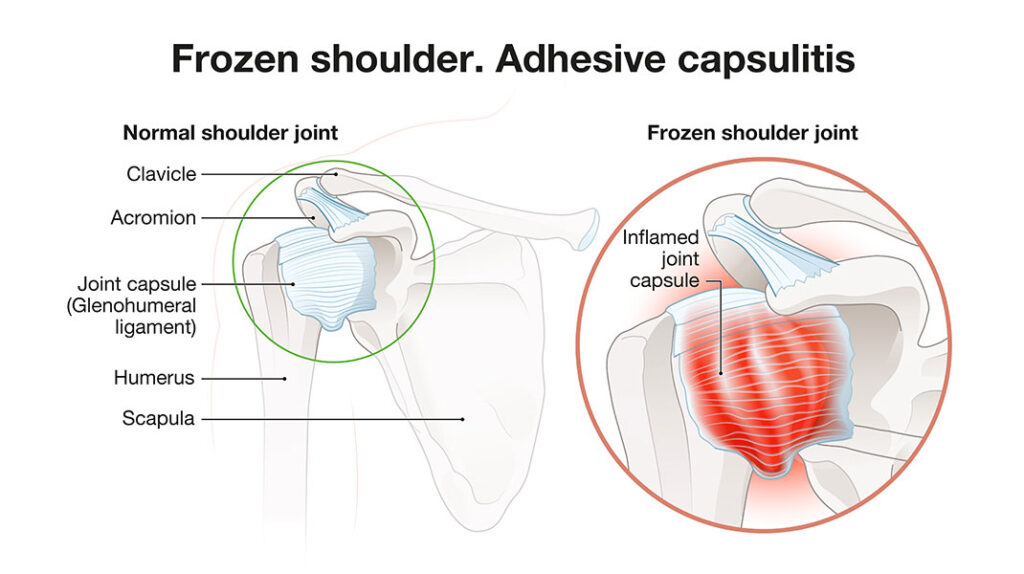The Role of Physical Therapy to Avoid Surgery & Pain Medication

Frozen shoulder, often referred to as adhesive capsulitis by a medical doctor, can be debilitating and painful. It is a disorder that is most often characterized by pain and loss of motion or stiffness in the shoulder. Although the cause of frozen shoulder is not fully understood, the process involves thickening and contracture of the capsule surrounding the shoulder joint.
The prevalence of shoulder pain the US has been reported to be between 2.4% to 26% of the population at any given time. With primary adhesive capsulitis, or frozen shoulder affecting between 2 to 5.3% of the general population.
Who is Most Affected by Frozen Shoulder?
Frozen shoulder pain typically occurs between ages of 40-65 years old and is more common in women than men. Research also suggests that a variety of co-morbidities, such as type 2 diabetes mellitus, hypothyroidism and hyperthyroidism, cardiac disease, as well as Parkinson’s Disease can also increase the prevalence of musculoskeletal complications.
Frozen shoulder can develop after a shoulder is injured or immobilized for a period of time, but can also occur without injury. You may notice increased pain and loss of range of motion of your shoulder. This leads to difficulty performing your daily activities and the ability to sleep at night especially on the affected side.
Stages of Frozen Shoulder
Frozen shoulder has four distinct stages:
- Stage 1 – Painful: A slow and gradually increasing onset of pain that can last from six to nine months.
- Stage 2 – Freezing: As the pain intensifies, the shoulder loses range of motion and begins to “freeze” in place.
- Stage 3 – Frozen: Slow improvement in the pain is noted during this stage. However, stiffness remains and can last anywhere from four to nine months.
- Stage 4 – Thawing: The shoulder motion slowly returns to normal over a period of five to 26 months.
Treatment for Frozen Shoulder Pain
A recent study has shown that the best evidence available for treatment of frozen shoulder pain is working on range of motion using a variety of treatment modalities. Rising Tide Physical Therapy’s skilled physical therapists are shoulder specialists. Get started today with a shoulder assessment at a location near you.
After your assessment, you and your physical therapist will work together to develop an individualized treatment plan that may include: manual therapy, therapeutic ultrasound, and other treatment options to ensure you get relief. Live life pain free and rise to your full potential without the need for pain medications or surgery.
GET RELIEF NOW
